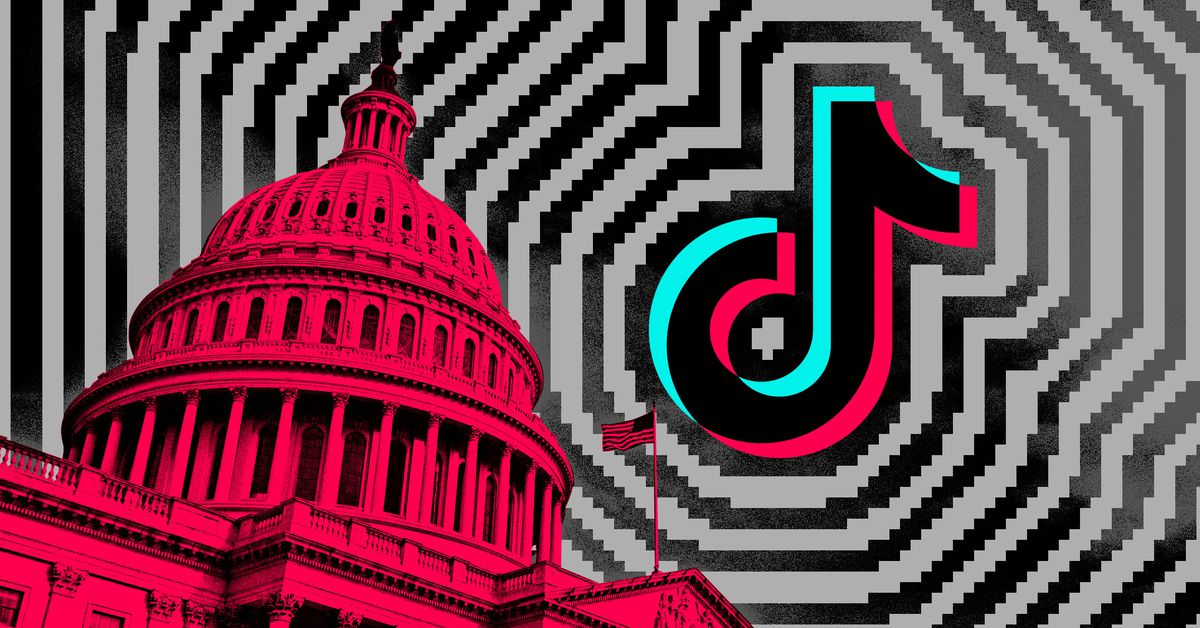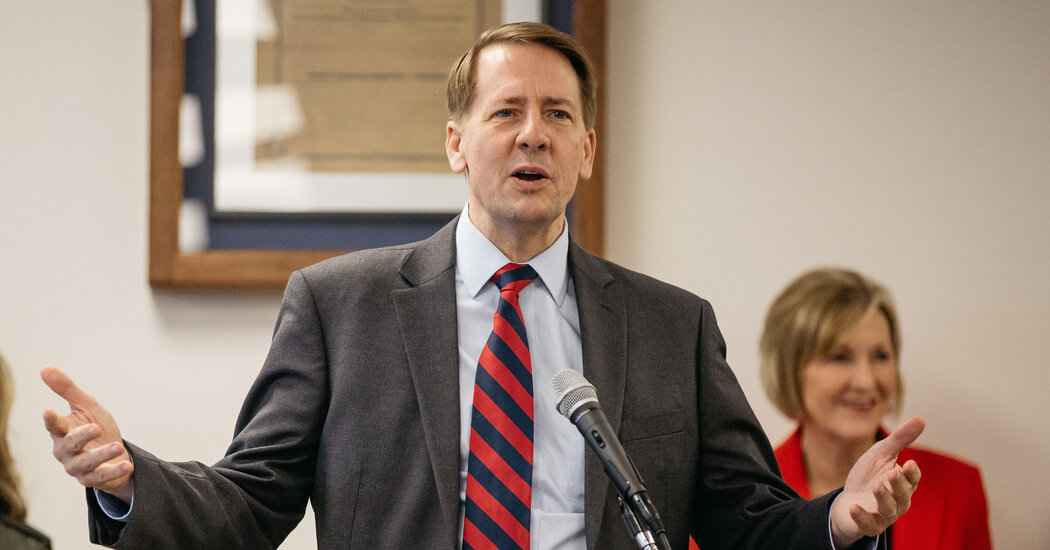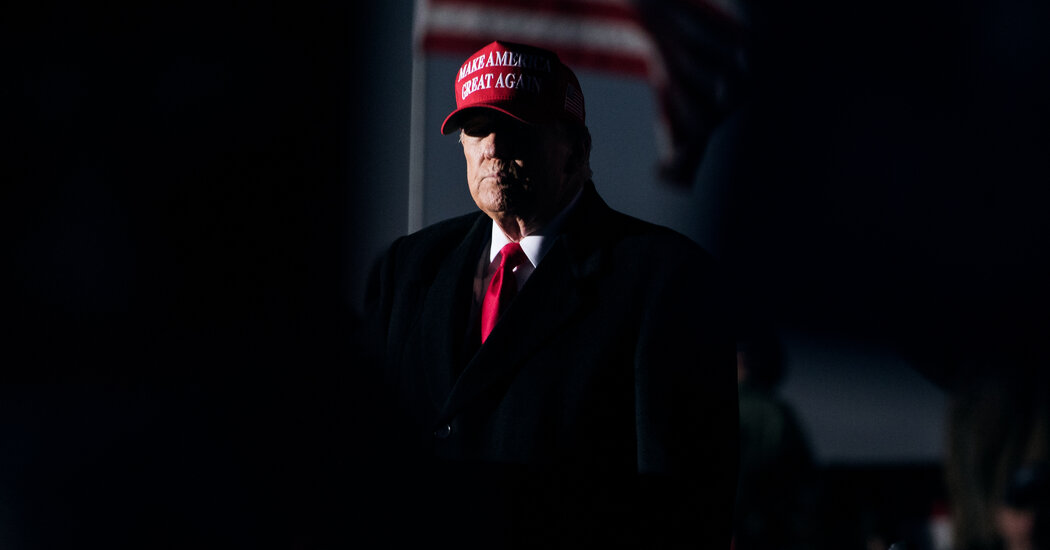The US push to force TikTok to divorce from its Chinese parent company or else be banned entirely had faded from public discussion for almost a full year. In the course of just over a week, it jumped suddenly from the pile of forgotten ideas to getting halfway through the process of becoming enshrined in law.
But the road to the blockbuster vote in the House of Representatives on Wednesday was months in the making. Rep. Mike Gallagher (R-WI), who chairs the Select Committee on the Chinese Communist Party and is a lead author of the bill, said he’d worked for eight months with colleagues including Ranking Member Raja Krishnamoorthi (D-IL) to prepare it.
“The fact that we didn’t leak the content of those negotiations to the media, it’s just a function of how serious our members were,” Gallagher told a group of reporters after 352 members voted in favor of passing HR 7521, the Protecting Americans from Foreign Adversary Controlled Applications Act (just 65 voted against it). “We had multiple iterations. We invited technical assistance from the White House, which improved the bill.”
The legislation is now heading to the Senate where it faces an uncertain future. But how did it get this far in the first place? The bill slid through an unusually fast process in Congress, and a classified hearing last Thursday may have been a major factor in convincing some representatives.
“Students in near tears”
But the clincher was an in-app congressional call-in campaign that backfired spectacularly. When TikTok rolled out notifications to its users urging them to call their representatives, phone lines immediately became clogged across Capitol Hill. Congressional staffers told The Verge about the calls of “students in near tears” with the “chatter of the classroom behind them.”
”They’re flooding our offices, often from kids who are about as young as nine years old, their parents have no idea that they’re doing this, they’re calling in, and they’re basically saying things like, ‘What is Congress? What’s a congressman, can I have my TikTok back?’” Krishnamoorthi told The Verge.
“One person threatened self harm unless they got their TikTok. Another impersonated a member of Congress’ son, scaring the bejesus out of the congressman, by the way,” said Krishnamoorthi. “And this is exactly the kind of influence campaign which, in the hands of a foreign adversary in a moment of national peril, could sow chaos and discord and division in a way that could really harm our national security to the benefit of a foreign adversary.”
“I can’t tell you how many people had the ‘aha’ moment just because of that particular push notification,” Krishnamoorthi said.
The road to the ban
The new legislation is not the first time Gallagher and Krishnamoorthi have tried to ban or force a sale of TikTok. The pair introduced the ANTI-SOCIAL CCP Act alongside Sen. Marco Rubio (R-FL) in late 2022, which would empower the president to ban social media companies from countries of concern, invoking the International Emergency Economic Powers Act (IEEPA).
But that statute comes with legal hurdles, and Gallagher acknowledged after the vote Wednesday that approach “wasn’t the right bill.” HR 7521 takes a different approach, making it illegal for app stores or web hosts to distribute social media services that are “controlled by a foreign adversary.” It also gives covered companies six months to divest from the foreign adversary ownership or stake to remain in the US.
The authors worked with stakeholders and the White House and Department of Justice for months to address concerns — including concerns about whether the legislation could violate the constitution. Even after all the work, Krishnamoorthi told reporters that the 352 votes the bill received “was not predicted.”
“That’s a testament to the power of the bill and the concern about ByteDances’ ownership of TikTok,” he said.
Some members expressed concern about the speed with which the bill made its way to passage
Still, some members expressed concern about the speed with which the bill made its way to passage. Rep. Ro Khanna (D-CA), a member of the Select Committee on the CCP alongside Gallagher and Krishnamoorthi, voted against it and called the process “rushed” in a statement. “Congress needs to listen and work instead on a broader data privacy bill to address real concerns without a ban,” he said.
“It was a 12 page bill,” Gallagher said of the speed right after the vote. “I mean, it wasn’t like an omnibus that we just shoved in people’s faces. Even a member of Congress could read 12 pages in a matter of hours.”
TikTok’s ‘number one worst public relations stunt’
Apparently caught off guard by the bill’s introduction last week, TikTok scrambled to activate its enormous US user base to fight it. The app featured a full-screen prompt for users to enter their zip codes and receive the number for their congressperson to call and urge against a TikTok ban.
Lawmakers’ phones began ringing off the hook just ahead of the committee’s vote.
A Democratic staffer for an Energy and Commerce Committee member said their office had hardly seen lobbying engagement of any kind from TikTok since its CEO’s testimony last year. The onslaught of calls took them by surprise.
For four hours, the office’s four phone lines were constantly full, with others going to voicemail. Staffers would take turns handling the phones when others had to get up to use the bathroom.
“It was so bad we had to turn off the phones,” the staffer said.
Several staffers estimated that callers sounded like they were 14, 15 years old
The callers were also unusual as far as congressional call-in campaigns go, based on conversations with five congressional staffers who were not authorized to speak on the record about internal matters. For one, they didn’t seem to have any sort of script. Some would hang up soon after they realized they got through to a live person. And even stranger, most sounded extremely young. Several staffers who spoke to The Verge estimated that callers sounded like they were 14, 15 years old, and sometimes even younger. TikTok has said the notification went to users over 18.
“Kids at recess, kids at lunch,” the Democratic staffer said. “Some kids would pass the phone around … it was a total debacle.”
A senior staffer for a Democratic member on the House Intelligence Committee said their office had gotten calls of “students in near tears, ‘What are you doing, why are you taking TikTok away from me?”
“They’re in class calling our office, you can hear the classroom chatter happening behind them,” the senior staffer added.
“They’re in class calling our office, you can hear the classroom chatter happening behind them”
After this staffer asked a caller to give their name to record their message, the young caller asked if they could leave their comment without giving out their information. The senior staffer recalled explaining that protecting the caller’s private information was exactly the point of the legislation they were calling about.
“I saw the lightbulb go off through the phone,” the senior staffer said.
Rep. Anna Eshoo (D-CA), an E&C member, told The Verge her office had received about 200 calls on the legislation last Thursday but only about eight to ten had left any information. “When the others heard someone answer the phone, they hung up.”
“If that was their lobbying effort, it was a bust,” she said.
Rather than convincing lawmakers of the affection their constituents have for the app, it seemed to prove to politicians how much power TikTok has as a service with direct access to 170 million US users.
“This was a preview of what could happen if the CCP wanted to use the app to prevent Congress from acting, say, on a debate over authorizing force to defend Taiwan. Or removing China’s permanent normal trade relations status,” Gallagher told reporters after the vote. “The possibility for dangerous propaganda is too immense to allow one of our foremost adversaries to have this control over what is increasingly becoming the dominant news platform in America.”
Many members have already looked skeptically at the proliferation of pro-Palestinian messages on the app in the wake of the October 7th terrorist attack by Hamas, and the subsequent Israeli response that has killed tens of thousands of Gaza residents. Some lawmakers have accused the app of boosting these messages at the behest of the Chinese government. TikTok has denied this, saying that between October 7th and November 2nd, “#standwithisrael” had 1.5 times more views than “#standwithpalestine.”
But TikTok hasn’t seemed to convince many House members. “I think the full court press last week backfired,” Gallagher told reporters after the vote. “I think that actually proved the point to a lot of members who may have been on the fence before.”
“It was probably the number one worst public relations stunt that TikTok pulled,” Krishnamoorthi told The Verge. “That was kind of the secret, not-so-secret reason why, for instance, the House Energy and Commerce Committee had a number of lean-yeses on the day of the vote that became hell-yeses by the time of the vote.”
In a letter to Gallagher and Krishnamoorthi on Monday, TikTok’s vice president of public policy Michael Beckerman wrote, “It is offensive that you would complain about hearing from your constituents and seek to deny them of their constitutional rights. One would hope, as public servants, that you would be well acquainted with the constitutional right to petition the government for redress of grievances.”
Eshoo said she understands why TikTok users would be upset, but that as a member of Congress, she has to factor in other considerations, too.
“If something presents a national security threat to the United States of America, I damn well better pay attention to that as a member of the Congress.”
“I doubt that TikTok’s 170 million users, I don’t think they’re concerned about our national security. That’s not something that they deal with day in, day out. They have their businesses, communications, and all of that with TikTok and they love it,” Eshoo said. “But if something presents a national security threat to the United States of America, I damn well better pay attention to that as a member of the Congress of the United States.”
A classified hearing
Members had access to classified briefings ahead of the vote to better understand the risks. For some members, these sessions seemed instrumental to their decisions to vote for the bill’s passage. Immediately before the House Energy and Commerce Committee voted 50–0 to pass the legislation last Thursday, they heard from representatives from the Federal Bureau of Investigation, Department of Justice, and Office of the Director of National Intelligence in a classified hearing.
Eshoo, who noted she’s attended many intelligence briefings after spending about a decade on the House Intelligence Committee, called the one ahead of Thursday’s committee markup “excellent.” She said hearing from intelligence officials helped ease any concerns she might have otherwise had about the process. “If it was brought up without additional, updated briefing, I would have objected,” she said. “But it was, I thought, a very thorough briefing, layered over other briefings that we have had.”
Krishnamoorthi told The Verge that it wasn’t necessarily “any one single revelation” that made the classified briefings impactful. “I think that it’s probably the level of seriousness with which people addressed the topic. And the way it was done, which was not partisan in any way.” He added that the opportunity for lawmakers to have “candid conversations” with each other in a bipartisan, classified setting was also helpful.
“One of the key differences between us and those adversaries is the fact that they shut down newspapers, broadcast stations, and social media platforms. We do not.”
Still, members who opposed the legislation said they either saw it as a rushed process or the wrong tool to fit the concerns. Notably, Connecticut Rep. Jim Himes, the top Democrat on the House Intelligence Committee, was one of the members who opposed the bill. He said in a statement that, due to his position on the committee, “I have more insight than most into the online threats posed by our adversaries. But one of the key differences between us and those adversaries is the fact that they shut down newspapers, broadcast stations, and social media platforms. We do not. We trust our citizens to be worthy of their democracy. We do not trust our government to decide what information they may or may not see.”
Himes added that he believes “there is a way to address the challenge posed by TikTok that is consistent with our commitment to freedom of expression. But a bill quickly passed by one committee less than a week ago is not that way.”
E&C Ranking Member Frank Pallone (D-NJ) also expressed concern about the speed of the process ahead of the committee’s classified hearing and vote last week. Pallone said he wanted to hear from the witnesses before making his decision. After emerging from the classified hearing, he joined the rest of his colleagues on the panel in voting for the legislation to pass. He later advocated for it on the floor before casting a vote in favor there, too.
The path ahead in the Senate
Now that the legislation’s fate is in the hands of the Senate, the process could slow down considerably. There’s not yet a companion bill in that chamber, and Majority Leader Chuck Schumer (D-NY) has not yet committed to a course of action besides reviewing the bill.
But the bill’s sponsors in the House are hopeful that Wednesday’s vote will send a message.
“The number we posted today, I think, makes it impossible for the Senate to ignore the effort,” Gallagher told reporters.
Cantwell has served as a roadblock to popular bipartisan tech legislation in the past
To move forward, Senate Commerce Committee Chair Maria Cantwell (D-WA) will need to usher the legislation through her panel. But Cantwell has served as a roadblock to popular bipartisan tech legislation in the past. She was the only one of the “four corners” of the relevant committees (the top Republicans and Democrats on the House Energy and Commerce Committee and Senate Commerce Committee) to withhold support for the American Data Privacy and Protection Act, the most concrete and comprehensive piece of privacy legislation to reach such an advanced stage. It passed out of the House committee by a vote of 53–2 in 2022.
In a statement after the House vote on the TikTok bill, Cantwell said she’d try to find “a path forward that is constitutional and protects civil liberties,” but did not necessarily commit to advancing that exact legislation.
“I’m very concerned about foreign adversaries’ exploitation of Americans’ sensitive data and their attempts to build backdoors in our information communication technology and services supply chains,” Cantwell said. “These are national security threats and it is good [that] members in both chambers are taking them seriously.”
Another potential speed bump is former President Donald Trump’s new opposition to a TikTok ban.
Trump surprised some by coming out against the TikTok bill last week, despite his own previous efforts during his time in office to ban the app. He said on Truth Social and CNBC that banning TikTok would only help Facebook, which he considers to be “an enemy of the people.”
Speaking with reporters after the vote, Gallagher tried to downplay Trump’s opposition. “If you actually read what Trump said, the goal of the bill is not to shut down TikTok and force its users onto Facebook. That would be a bad outcome,” he said. “So in that sense, I agree with what Trump said. But our bill allows for a divestiture.”
Gallagher also appealed to Trump’s ego and self-crafted image as a dealmaker, saying, “Trump may, if he gets reelected, have an opportunity to consummate the deal of the century.”








